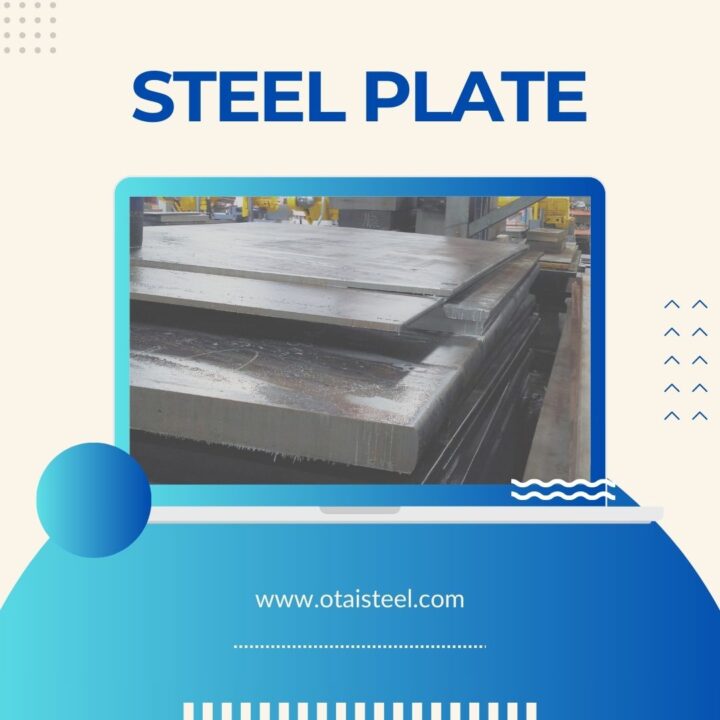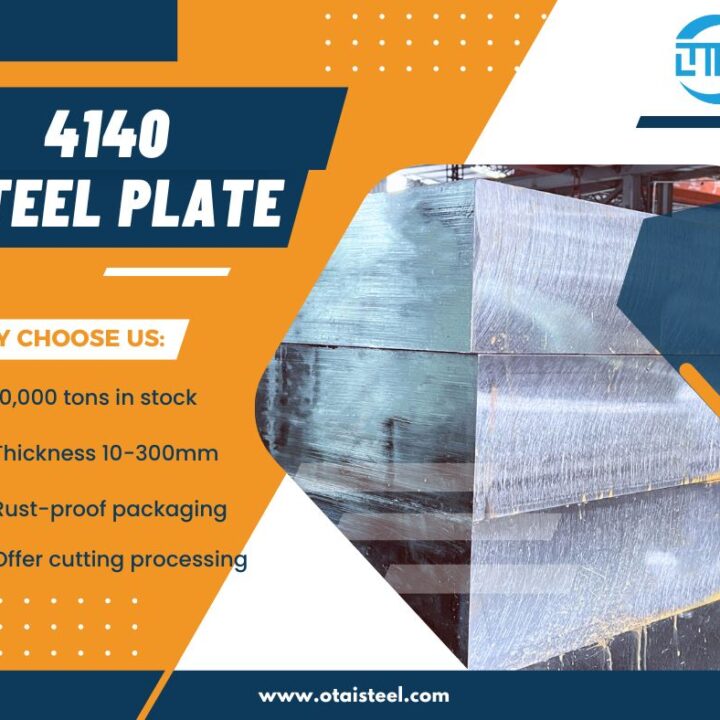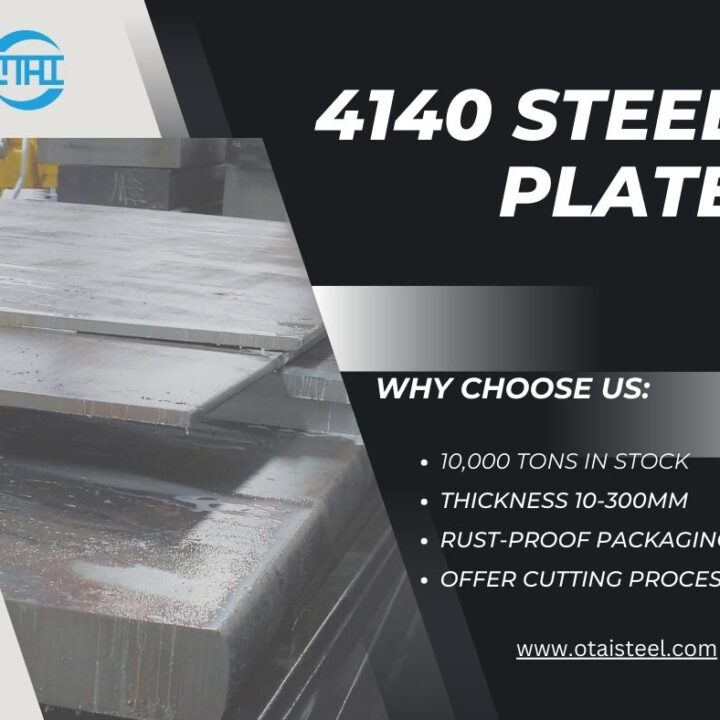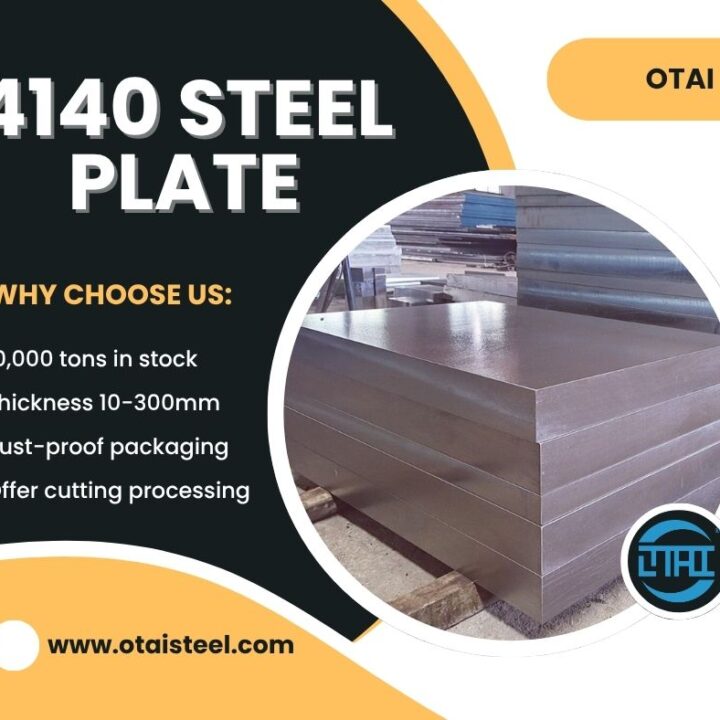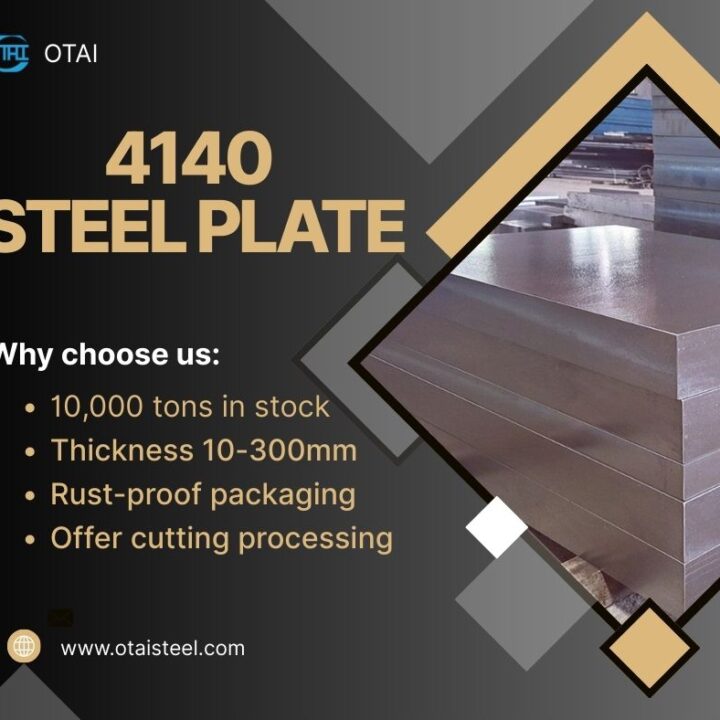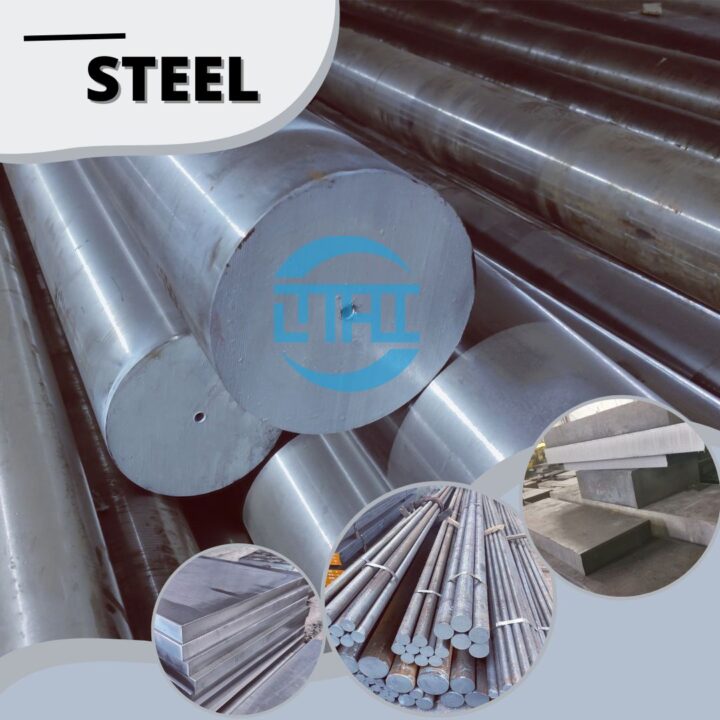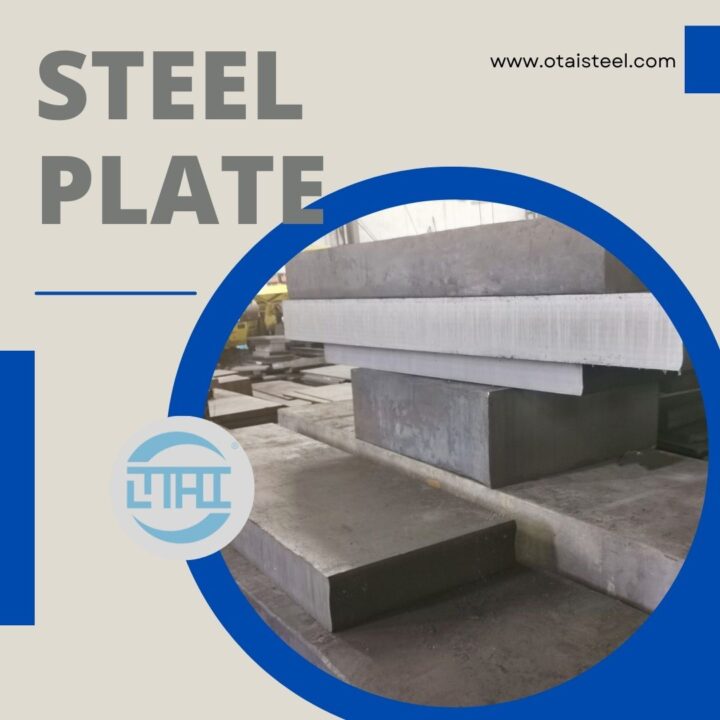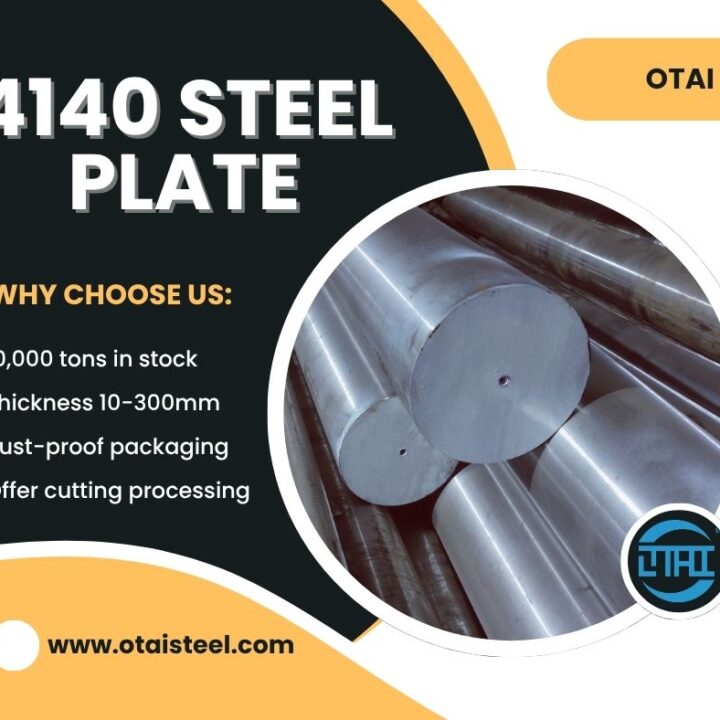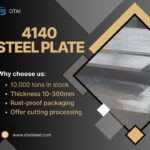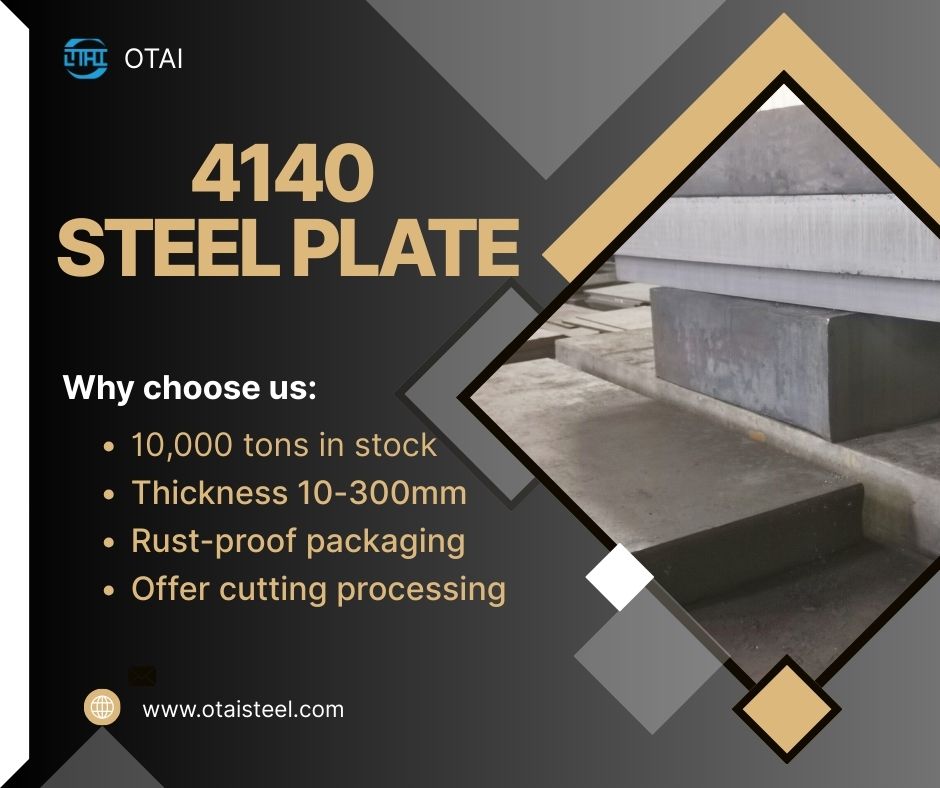 4140 Steel Information –Why 4140 Alloy Steel?
4140 Steel Information –Why 4140 Alloy Steel?
When it comes to high-performance alloy steels, 4140 steel is one of the most widely used and recognized materials in the world. Its unique balance of toughness, strength, and wear resistance makes it an essential choice across industries ranging from automotive to oil & gas, heavy machinery, and tool manufacturing. In this article, we’ll provide all the essential 4140 steel information you need—covering its composition, mechanical properties, heat treatment behavior, and practical applications.
🌟 What is 4140 Steel?
4140 steel is a chromium-molybdenum low-alloy steel that belongs to the AISI-SAE family of alloy steels. It is classified as a versatile material because it offers an excellent combination of mechanical strength, fatigue resistance, and toughness—qualities that make it suitable for demanding engineering components.
-
Category: Low-alloy steel
-
Common Forms: Plate, bar, tube, and forgings
-
Standards: AISI 4140, ASTM A29, DIN 1.7225, JIS SCM440
This steel is especially known for its ability to be heat treated to various hardness levels, depending on the final application.
🔬 4140 Steel Chemical Composition
The properties of 4140 steel stem from its carefully balanced chemical composition.
| Element | Typical Content (%) |
|---|---|
| Carbon (C) | 0.38 – 0.43 |
| Chromium (Cr) | 0.80 – 1.10 |
| Molybdenum (Mo) | 0.15 – 0.25 |
| Manganese (Mn) | 0.75 – 1.00 |
| Silicon (Si) | 0.15 – 0.35 |
| Phosphorus (P) | ≤ 0.035 |
| Sulfur (S) | ≤ 0.040 |
This balanced mix gives 4140 steel its well-known strength, toughness, and wear resistance.
⚙️ Mechanical Properties of 4140 Steel
4140 steel is valued because it delivers high strength without sacrificing ductility.
| Property | Condition | Typical Value |
|---|---|---|
| Tensile Strength | Annealed | 655 MPa (95 ksi) |
| Yield Strength | Annealed | 415 MPa (60 ksi) |
| Tensile Strength | Quenched & Tempered | 850 – 1000 MPa (123 – 145 ksi) |
| Yield Strength | Quenched & Tempered | 655 – 862 MPa (95 – 125 ksi) |
| Hardness (HB) | Annealed | 197 HB max |
| Hardness (HRC) | Heat Treated | 28 – 32 HRC (typical), up to 50 HRC |
This flexibility allows engineers to adjust the material performance through quenching and tempering, making it suitable for parts under heavy loads.
🔥 Heat Treatment Behavior
One of the most critical aspects of 4140 steel information is how it responds to heat treatment:
-
Annealing: Refines grain structure and reduces hardness to improve machinability.
-
Quenching: Achieves higher hardness and wear resistance.
-
Tempering: Adjusts strength and toughness after quenching.
-
Normalizing: Improves toughness and mechanical uniformity.
🏭 Applications of 4140 Steel
Because of its versatility, 4140 steel is found in countless applications, including:
-
Gears and shafts
-
Bolts and fasteners
-
Crankshafts and connecting rods
-
Drill collars and oilfield equipment
-
Tool bodies and dies
-
Hydraulic machinery parts
For applications that require high fatigue resistance, dimensional stability, and strength under stress, 4140 steel is a leading choice.
🛠 Machinability and Weldability
-
Machinability: 4140 steel offers moderate machinability in its annealed state, but it becomes more difficult to machine after hardening. Proper cutting fluids and rigid setups are essential.
-
Weldability: 4140 steel can be welded, but preheating and post-weld heat treatment are often necessary to avoid cracking due to its higher carbon content.
📦 Forms Available on the Market
When sourcing 4140 steel, buyers can find it in multiple shapes and sizes:
-
Plates (6mm – 300mm thick)
-
Round bars and square bars
-
Hollow bars and tubes
-
Forged blocks
This flexibility allows suppliers and buyers to choose the right form for machining or direct use.
💡 Why Choose 4140 Steel?
The unique benefits of 4140 steel include:
-
Balanced strength and toughness
-
Wide availability in global markets
-
Excellent fatigue resistance
-
Customizable hardness through heat treatment
-
Strong track record in heavy-duty engineering applications
🌍 Company Advantages – Otai Special Steel
At Otai Special Steel, we are experts in supplying 4140 steel and other alloy steels. With over 10,000 tons of inventory available, we provide plates, bars, and tubes in various sizes with value-added services such as cutting, heat treatment, and ultrasonic testing.
Our company has supplied major international corporations, offering:
-
Stable and consistent quality
-
Global export experience
-
SGS/UT inspection services
-
Competitive prices with fast delivery
❓ FAQ About 4140 Steel Information
Q1: What makes 4140 steel better than plain carbon steel?
4140 has chromium and molybdenum, giving it better strength, toughness, and wear resistance.
Q2: Can 4140 steel be surface hardened?
Yes, it can undergo induction hardening or carburizing for improved surface wear resistance.
Q3: Is 4140 steel corrosion-resistant?
It has some corrosion resistance due to chromium, but it’s not stainless. Protective coatings are recommended.
Q4: Which industries use 4140 steel the most?
Automotive, oil & gas, aerospace, tool manufacturing, and heavy machinery.
Q5: Does heat treatment affect machinability?
Yes. 4140 steel is easiest to machine in the annealed state; after hardening, it requires more advanced machining setups.

